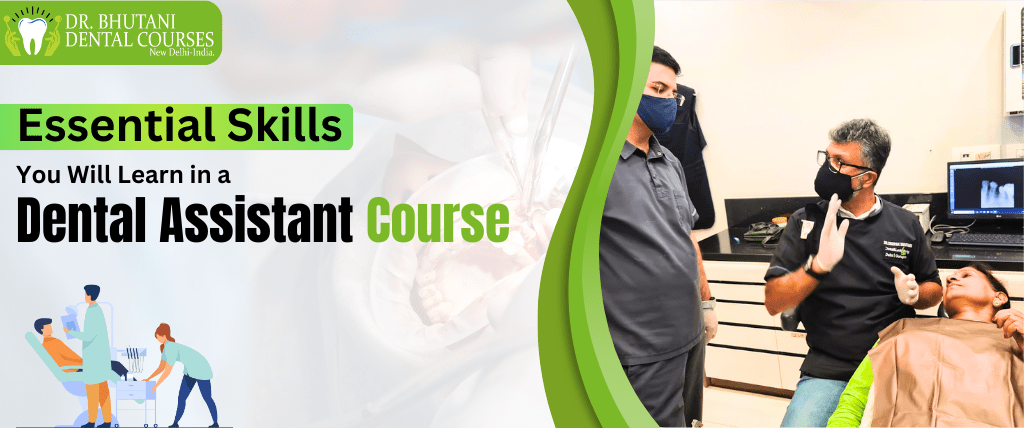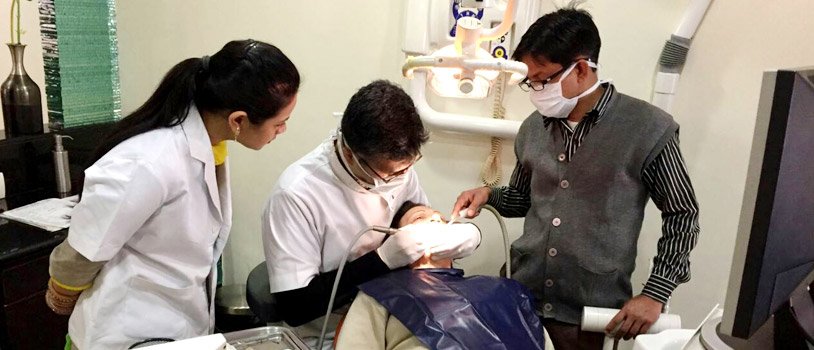In order to guarantee efficient operations and top-notch patient care, dental assistants collaborate with dentists and hygienists. Enrolling in a dental assistant course, or even a dental implant course, is a terrific first step in gaining the skills and knowledge required if you’re thinking about becoming a dental assistant. These courses include a broad range of subjects, from administrative work to clinical procedures, and offer practical instruction. A dental assistant education will teach you these vital skills.
Chairside Assistance
Chairside support is one of the main duties of a dental assistant. This include assisting the dentist with treatments by setting up tools, drawing fluids, and making sure the patient is at ease. You will learn how to anticipate the dentist’s demands, pass tools quickly, and keep the area clean during your training. You will also get specific expertise about helping with implant treatments if you are doing a dental implant course. For the dentist and the patient to have a smooth, effective encounter, chairside support must be mastered.
Patient Care and Communication
Since dental assistants frequently interact with patients initially, effective communication is crucial. You will learn how to communicate with patients, describe treatments, and give aftercare instructions in a dental assistant course. You will also receive training on how to manage patient anxiety, especially for individuals who are anxious about dental operations. Building trust and guaranteeing a satisfying patient experience need compassionate and transparent communication.
Dental Radiography
Another important skill you will learn is how to take and process dental X-rays. Dental assistants are frequently in charge of taking precise pictures that aid in the diagnosis and treatment planning of patients. You may learn how to operate radiography equipment safely and accurately as well as how to interpret the results by enrolling in a dental assistant school. You will also get specific information on taking X-rays to assist implant treatments if you are enrolled in a dental implant course.
Infection Control and Sterilization
In every healthcare facility, but particularly in dentistry, maintaining a sterile environment is essential. You’ll receive instruction on appropriate infection control practices, such as how to sterilize and disinfect tools and equipment to avoid cross-contamination. In order to ensure the safety of both patients and providers, your course will also teach how to properly utilize personal protective equipment (PPE), including as masks, gloves, and gowns.
Administrative Skills
Dental assistants frequently perform a variety of administrative responsibilities in addition to clinical duties. Appointment scheduling, patient record management, and insurance claim and billing processing are a few examples. You will acquire the organizational abilities necessary to manage office duties effectively in your dental assistant training. Additionally, you will learn about dental software systems that are essential to the efficient operation of a dental office and are utilized for patient administration and record-keeping.
Basic Dental Procedures
Basic dental treatments including cleanings, tooth extractions, and fillings will be covered in a dental assistant course. Understanding these processes is crucial for supporting the dentist and making sure everything goes without a hitch during appointments, even if dental assistants do not carry them out. You will learn how to help with more complex operations in a dental implant course, making sure that the patient and the practitioner have all they require.
Oral Health Education
Another important duty of dental assistants is to educate patients about oral hygiene. You’ll discover how to instruct patients on the value of routine dental examinations, nutritional guidelines, and appropriate brushing and flossing methods. You will contribute significantly to the promotion of long-term oral health by teaching patients how to take care of their teeth and gums.
Emergency Management
Emergencies like allergic reactions, fainting, or acute pain can happen in any healthcare environment, including dentistry offices. Basic life support (BLS) and cardiopulmonary resuscitation (CPR) will be covered in your dental assistant training. In order to be ready to act promptly and efficiently in the event that an unforeseen circumstance arises during a patient’s visit, you will also study how to manage medical crises in a dental environment.
You will gain a broad range of skills by taking a dental assistant or dental implant course, setting you up for a prosperous and fulfilling career in the dentistry field.



